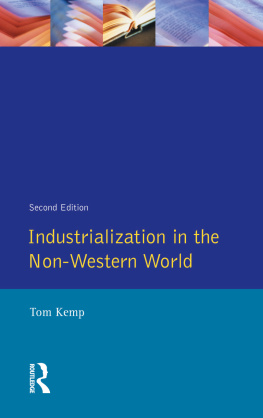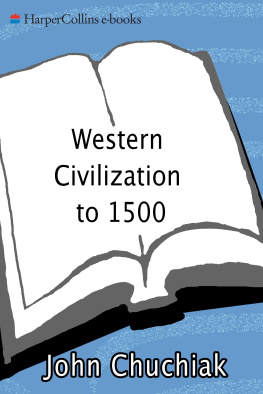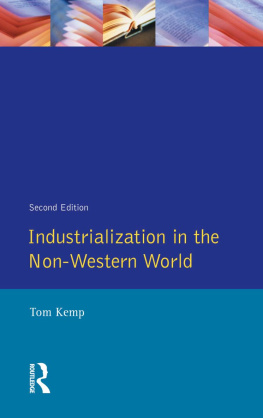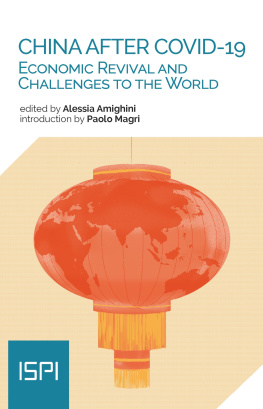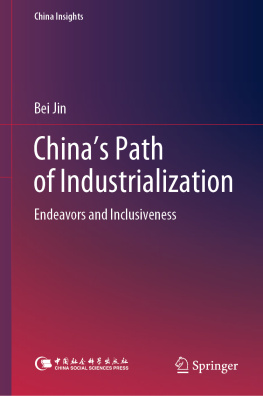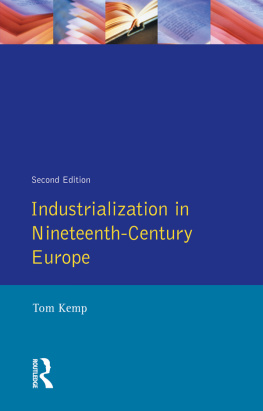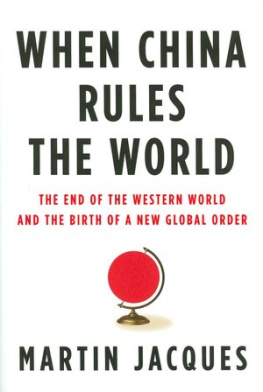Kemp - Industrialization in the non-Western world
Here you can read online Kemp - Industrialization in the non-Western world full text of the book (entire story) in english for free. Download pdf and epub, get meaning, cover and reviews about this ebook. City: London, New York, year: 2014, publisher: Taylor and Francis;Routledge;Longman, genre: Politics. Description of the work, (preface) as well as reviews are available. Best literature library LitArk.com created for fans of good reading and offers a wide selection of genres:
Romance novel
Science fiction
Adventure
Detective
Science
History
Home and family
Prose
Art
Politics
Computer
Non-fiction
Religion
Business
Children
Humor
Choose a favorite category and find really read worthwhile books. Enjoy immersion in the world of imagination, feel the emotions of the characters or learn something new for yourself, make an fascinating discovery.
Industrialization in the non-Western world: summary, description and annotation
We offer to read an annotation, description, summary or preface (depends on what the author of the book "Industrialization in the non-Western world" wrote himself). If you haven't found the necessary information about the book — write in the comments, we will try to find it.
Kemp: author's other books
Who wrote Industrialization in the non-Western world? Find out the surname, the name of the author of the book and a list of all author's works by series.
Industrialization in the non-Western world — read online for free the complete book (whole text) full work
Below is the text of the book, divided by pages. System saving the place of the last page read, allows you to conveniently read the book "Industrialization in the non-Western world" online for free, without having to search again every time where you left off. Put a bookmark, and you can go to the page where you finished reading at any time.
Font size:
Interval:
Bookmark:

INDUSTRIALIZATION IN THE NON-WESTERN WORLD
INDUSTRIALIZATION IN THE NON-WESTERN WORLD
Second Edition
Tom Kemp

First published 1983 by Addison Wesley Limited
Second edition 1989
Fifth impression 1998
Published 2013 by Routledge
2 Park Square, Milton Park, Abingdon, Oxon OX14 4RN
711 Third Avenue, New York, NY 10017, USA
Routledge is an imprint of the Taylor & Francis Group, an informa business
Copyright 1983, 1989, Taylor & Francis.
All rights reserved. No part of this book may be reprinted or reproduced or utilised in any form or by any electronic, mechanical, or other means, now known or hereafter invented, including photocopying and recording, or in any information storage or retrieval system, without permission in writing from the publishers.
Notices
Knowledge and best practice in this field are constantly changing. As new research and experience broaden our understanding, changes in research methods, professional practices, or medical treatment may become necessary.
Practitioners and researchers must always rely on their own experience and knowledge in evaluating and using any information, methods, compounds, or experiments described herein. In using such information or methods they should be mindful of their own safety and the safety of others, including parties for whom they have a professional responsibility.
To the fullest extent of the law, neither the Publisher nor the authors, contributors, or editors, assume any liability for any injury and/or damage to persons or property as a matter of products liability, negligence or otherwise, or from any use or operation of any methods, products, instructions, or ideas contained in the material herein.
ISBN 13: 978-0-582-02182-2 (pbk)
British Library Cataloguing in Publication Data
Kemp, Tom
Industrialization in the non-Western world.
1. Industrialisation, to 1982 Case studies
I. Title
338.00722
Library of Congress Cataloging-in-Publication Data
Kemp, Tom.
Industrialization in the non-Western world / Tom Kemp. 2nd ed.
p. cm.
Bibliography: p.
Includes index.
ISBN 0582021820 (pbk.)
1. IndustrializationHistory. 2. Economic developmentHistory.
I. Title.
HD2321.K433 1989
338.09dc19
8828581
CIP
Set in 10/12pt Linotron Baskerville
CONTENTS
We are indebted to the World Bank and Oxford University Press (New York) for permission to reproduce our table on pp. 21417.
Industrialization is increasingly being studied by economists and economic historians as a process in its own right which brought into being the modern world. It is widely seen as the major means through which those areas of the world which suffer from poverty and backwardness can move closer to the advanced nations. It is seen as the key to both growth, in the sense of an increase in per capita incomes and development, meaning a more rounded structural transformation.
In its approach to industrialization, this book follows two previous books. The first, Industrialization in Nineteenth Century Europe (Longman 1969) confined itself to those European countries which followed in Britains tracks before the First World War. The second, Historical Patterns of Industrialization (Longman 1978), besides taking up some general themes such as technology, transport and banking and their relationship to industrialization, also included some brief case-studies of non-European countries. This volume carries on the story into the twentieth century, linking the case studies of the earlier books and concentrating on the non-Western World.
The phrase, non-Western World, needs a word of explanation. It is used here in a mainly geographical sense, to indicate that the older industrial countries of Western Europe and North America have been excluded. The emphasis is thus on the late-comers or followers on the path of industrialization outside those areas. It is not denied that the Soviet Union shares many Western traditions, or that they have made a deep imprint on some of the other countries discussed here. However, development in these non-Western countries has to be seen, as far as possible in their own terms while avoiding a Euro-centred approach.
The choice of countries is not exactly arbitrary, though the earlier economic history of Russia, Japan and India has been dealt with in the previous books. First of all, the countries are large, if not in population and area alone, then in specific weight in the world economy, as in the case of Japan. That means, also, when the populations are added up, that they represent something like one-half of the total world population. It is difficult to be accurate though, as the population of China, India and other parts of the world is not known for certain. However, at the end of the 1970s the population of the selected countries was approximately as follows:
Soviet Union: 260 million
Japan: 112 million
Brazil: 110 million
India: 620 million
China: 850 million
Nigeria: 80 million.
The figures for China and India are the lowest estimates and the real totals may be very much larger. In any case their populations are increasing rapidly.
There seems to be more sense in taking countries of this scale rather than, say, dealing with the experience of small countries such as Taiwan, Cuba or Albania. On the other hand, large countries have distinct advantages: they may have a more varied raw material endowment, a larger labour force and a bigger potential home market, thus permitting greater scale economies. Because of this, their experience may bear little relation to that of smaller countries. However, even for large countries autarchic development is costly, if not impossible, as the Soviet policy of socialism in one country shows. Even the largest countries are part of a world market and gain advantages from participating in the international division of labour.
This book deals with the recent economic experience of about half of humanity and considerably more than half of the non-Western world. It will be shown that while industrialization has some common underlying features, it works itself out in distinctive ways in specific historical and national conditions. Moreover there are basic differences between industrialization in market economies, even where the state plays a positive role, and in those countries having nationalized property relations and a centrally-planned allocation of resources. The choice of countries enables variants of both types to be examined.
The approach adopted is an historical one, based upon the view that the path followed by each country is determined to a very large extent by its past. It is from a study of history that the differential receptivity of particular countries to industrialization can be understood.
Any discussion of industrialization in the twentieth century is bound to be concerned with the prospects of the developing countries. Assessment of their achievement so far differs widely. Some of these countries have begun to industrialize with some success in purely quantitative terms (GNP per capita). On the other hand, it is claimed that their economies remain peripheral and dependent and that they have not been able to replicate successfully the experience of the older capitalist countries. A chapter illustrated by brief case studies is devoted to the problems of the developing countries.
This book is intended as an introductory text for students of economic history, political economy and development studies. It aims to open the way for further study by evoking interest, suggesting what the problems are and why they are important for the future of humanity and not just for academic reasons. The main authorities are indicated in the bibliography, which is also intended as a guide for more detailed study. Ones approach and views are influenced by so much read, heard and experienced that it cannot be regarded as a full indication of sources. As with the previous books, I have avoided footnotes and long quotations from other texts; this is not because the authors to whom I am indebted may not have made the point at issue better or more clearly than I do, but because I feel that by reframing it in my own words, I can make the wider argument more comprehensible to the reader.
Next pageFont size:
Interval:
Bookmark:
Similar books «Industrialization in the non-Western world»
Look at similar books to Industrialization in the non-Western world. We have selected literature similar in name and meaning in the hope of providing readers with more options to find new, interesting, not yet read works.
Discussion, reviews of the book Industrialization in the non-Western world and just readers' own opinions. Leave your comments, write what you think about the work, its meaning or the main characters. Specify what exactly you liked and what you didn't like, and why you think so.

